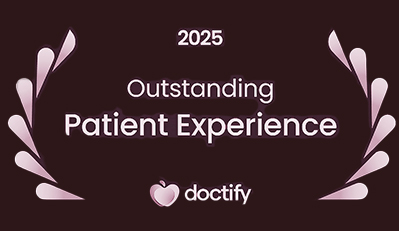
What happens if cataracts are left untreated?
Cataracts are common as we age, and they tend to develop slowly. In the early stages, the changes to your vision may seem minor. But over time, cataracts progress and if left untreated, they can seriously impact your independence, safety, and quality of life.
So what happens if you don’t do anything about them?
In this blog, we’ll walk you through what to expect as cataracts worsen, why treatment is necessary, and what you can do next if you're starting to notice symptoms.
What is a cataract?
A cataract is the clouding of the natural lens inside your eye. This lens sits behind the coloured part of your eye (the iris) and helps focus light onto your retina so you can see clearly.
As we age, proteins in the lens break down and clump together. This creates cloudy patches that block or scatter light. The result is blurred, dim, or distorted vision.
Cataracts won’t get better on their own. They are a progressive condition, meaning they get worse over time.
Early signs of cataracts
At first, you may not notice much change. But common early signs include:
- Blurry or hazy vision
- Glare from headlights or bright lights
- Difficulty seeing clearly at night
- Faded or yellowing colours
- Needing more light to read
- Frequent changes in glasses prescriptions.
These signs might come and go. Many people adjust to them without realising how much their vision has changed.
What happens as cataracts progress?
If cataracts are left untreated, the clouding becomes more severe. Vision gradually declines, leading to:
1. Increased difficulty with everyday tasks
Reading, cooking, using a smartphone, or watching TV becomes more challenging. You may rely more on others for help.
2. Reduced independence
Driving may no longer feel safe, especially at night. Loss of mobility and confidence can lead to isolation or reduced quality of life.
3. Greater risk of falls
Poor vision is a major risk factor for falls, particularly in older adults. Cataracts can affect depth perception, increasing the chance of accidents.
4. Emotional impact
Living with reduced vision can affect your mental wellbeing. Many patients feel frustrated, anxious, or less confident as their sight worsens.
5. Eventually, blindness
In advanced stages, cataracts can cause significant vision loss. While not painful, untreated cataracts can eventually lead to legal or total blindness. The good news is that this is preventable.
Can cataracts damage the eye?
Cataracts themselves don’t damage the eye or cause pain. But if left untreated for too long, they can complicate surgery later on.
Over-mature cataracts become harder and more difficult to remove, increasing the risks of surgery. In some cases, they can also raise eye pressure and lead to other issues like inflammation or glaucoma.
The longer you wait, the more complex the treatment can become.
When should you consider surgery?
You don’t need to wait until your vision is severely impaired. Many people choose to have cataract surgery as soon as it starts affecting:
- Reading
- Driving
- Work
- Hobbies like sewing, golf, or gardening.
At Mitry Vision, you can schedule surgery at a time that suits you, no need to wait for the cataract to become “bad enough.”
How is a cataract treated?
Cataract surgery is a quick, safe, and effective procedure. The cloudy lens is removed and replaced with a clear artificial lens called an intraocular lens (IOL). It takes about 15–20 minutes per eye and is done under local anaesthetic.
At Mitry Vision, you’ll also have the option of premium lenses that reduce or eliminate the need for glasses.
Final thoughts
Cataracts are one of the leading causes of vision loss but they’re also one of the most treatable.
Waiting too long can lead to unnecessary complications, safety risks, and a lower quality of life. If you’ve noticed any changes in your vision, don’t ignore them.
Take our free self-test to see if you're suitable for cataract surgery and get the clarity you deserve.
Find out if you are suitable for vision correction
Not everyone is eligible for vision correction surgery.
Find out if you could benefit from this life changing surgery by taking the quick self-suitability quiz below:




